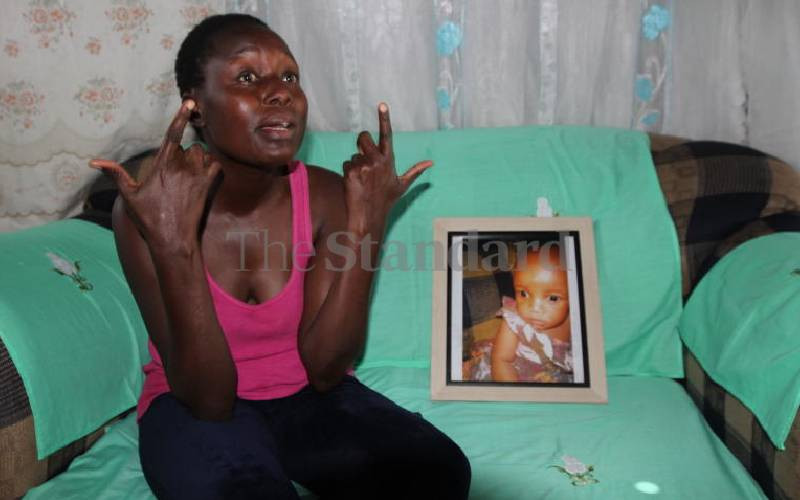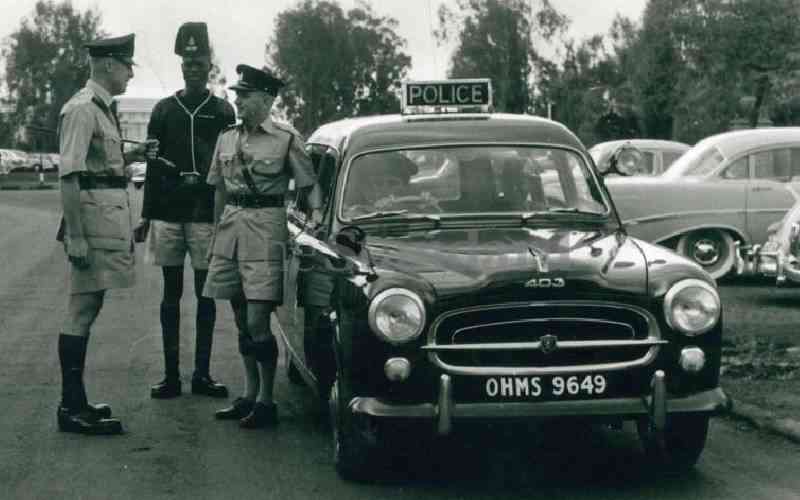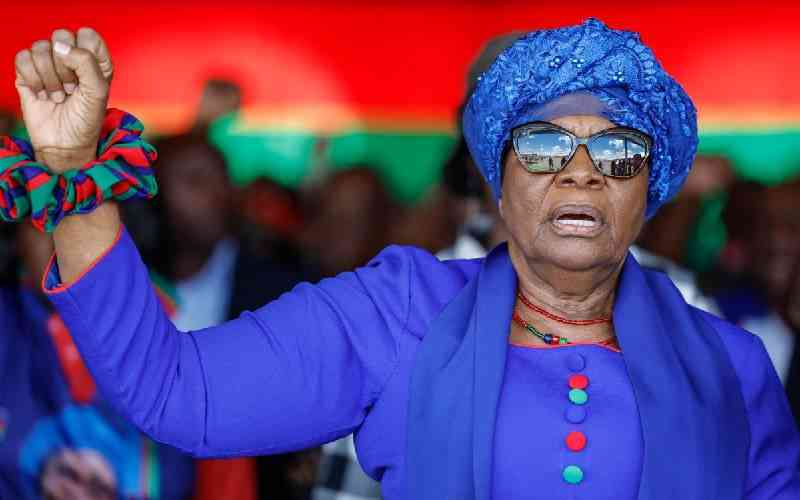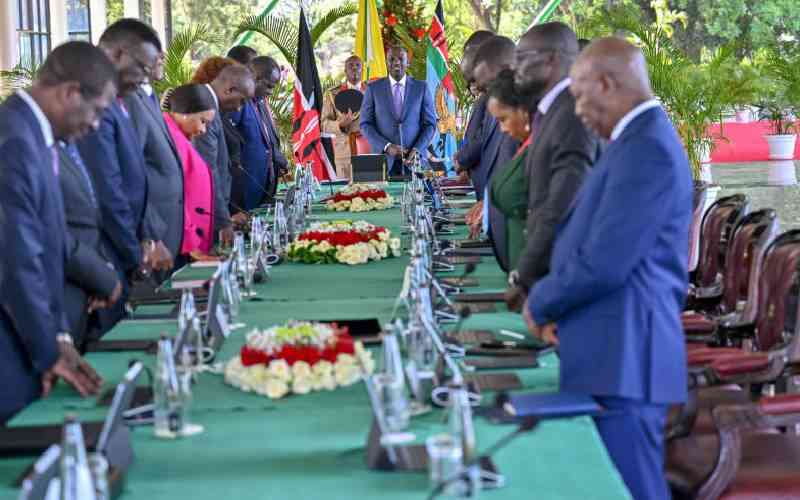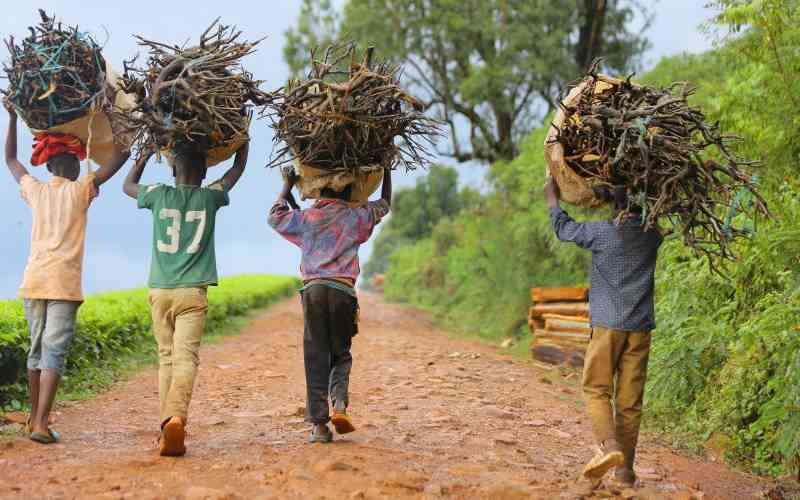
On this Day of the African Child, I share my experience meeting and talking with parents and teachers of children for whom this year's theme doesn't apply.
Ten days ago, I went on a road trip to Kenya's most expansive county, Marsabit, to monitor the ongoing Usawa Agenda learning assessment. I set off from Nairobi early and was on the outskirts of Karatina town in Nyeri County at 5.40am. I came across teenagers in a variety of school uniforms along the road. Some in groups, others isolated. They tried to flag me down, as they did to the motorists ahead of me. I realised that this was their routine in search of education!
I asked myself many questions as I drove on: how safe is it, especially for the lone girls and boys, seeking lifts from strangers in the pre-dawn darkness? How far are their schools for them to be on the road that early? How early are they expected in school, if the schools are within reasonable commuting distance? What were their boarding school counterparts doing at that hour?
I was on the Isiolo-Marsabit road between 10.30am and 1.00pm and encountered children in contrasting circumstances than what I had seen in Nyeri earlier in the day. For starters, Isiolo town is in the centre of Kenya. Past Isiolo, one is officially in the northern half of Kenya. In contrast to the global north, which epitomises power and prosperity, the Kenyan north is the poster region for national peripheralisation.
While the children in Nyeri were on the road early, begging motorists to get them to school, those in the north were on the road in sweltering heat, begging motorists for drinking water as they shepherded sheep and goats. Initially, I didn't understand what the children's gestures meant, until I was explained to by a gentleman I had offered a lift at one of the many police check points dotting the highway to the north. I stopped and gave the only drinking water bottle I had to one of the boys. He said to us in his mother tongue (translated by my passenger): "May God bless you abundantly!"
Chalbi desert
Yet more gut-wrenching experiences lay in wait on the third day of my visit. I visited the school that Usawa Agenda's poster boy attends. It is 50kms from his home in Chalbi desert and so he, like 400 other children, stay in the school. I met the school's headteacher and we had lengthy conversations about our boy's progress in school and the challenges of running a boarding school in a food and water scarce environment.
I concluded that for him, running that school, of which he is an alumnus, is not a job, it is a calling. His dedication to the education of children from that community is absolute. His role is unique in the broader communal struggle for survival against great odds of gruelling poverty, retrogressive culture, government neglect and climate change-driven natural calamities.
Then I visited our poster boy's home. I met his family and learned that he is the only one in a family of five boys that attends school. Neither his two elder brothers, nor his two younger ones (clearly undernourished) have ever enrolled. Their widowed mother is unable to meet their most basic needs.
I met his neighbours - several children aged between six and 13 years. They were all out of school. Among them were two girls whose names I can't mention aged 9 and 11, whose father I spoke with. He asked for help to educate all his children except the two girls. Reason? They were betrothed to men and are to get married on turning 16 years. He was emphatic that he cannot renege on the commitments he made as that would lead to his being ostracised by the community, even after we explored together opportunities for the girls to get support from well-wishers to go to school.
He is one year older than me, but he looks like he is my father's age. Such are the visible scars from his fight with poverty. Thus, I understand him. He lives in a society where every need, including security of the person, is provided by the society. Being ostracised is a bridge too scary to cross.
So, I ask, as we mark this under the theme: "The rights of the child in the digital environment", what is the place of these children caught between the anvil of retrogressive cultures and the hammer of poverty and unrelenting calamities? Are their silent struggles for education justice part of the national day and global agendas?
 The Standard Group Plc is a multi-media organization with investments in media platforms spanning newspaper print
operations, television, radio broadcasting, digital and online services. The Standard Group is recognized as a
leading multi-media house in Kenya with a key influence in matters of national and international interest.
The Standard Group Plc is a multi-media organization with investments in media platforms spanning newspaper print
operations, television, radio broadcasting, digital and online services. The Standard Group is recognized as a
leading multi-media house in Kenya with a key influence in matters of national and international interest.


